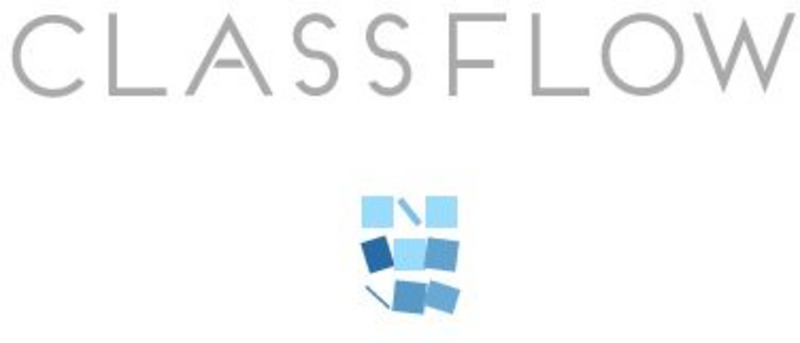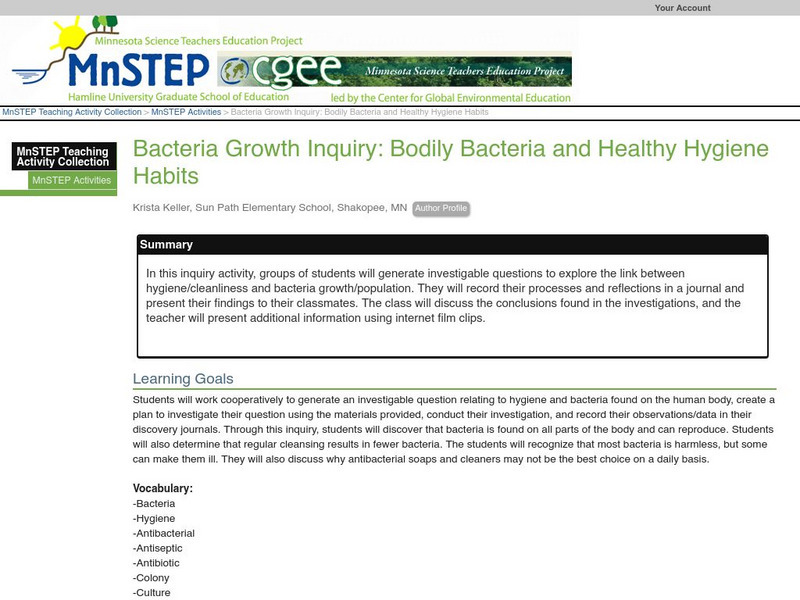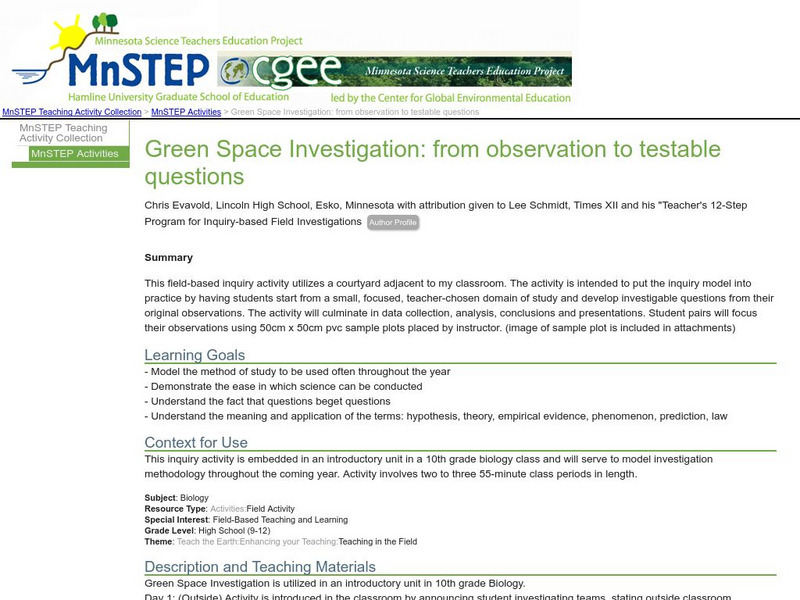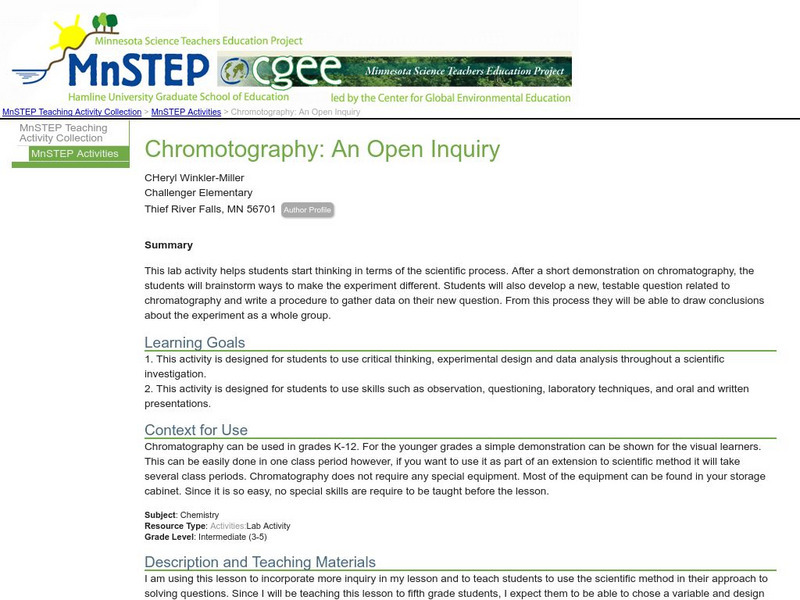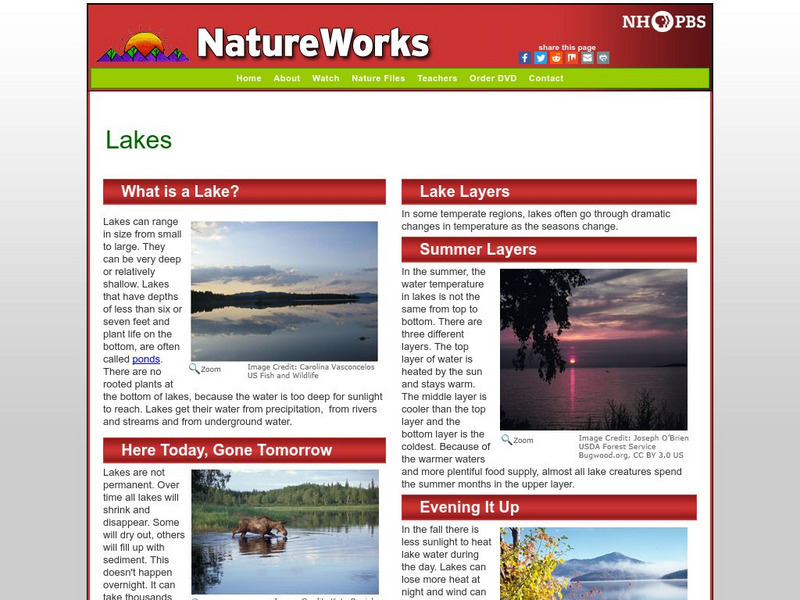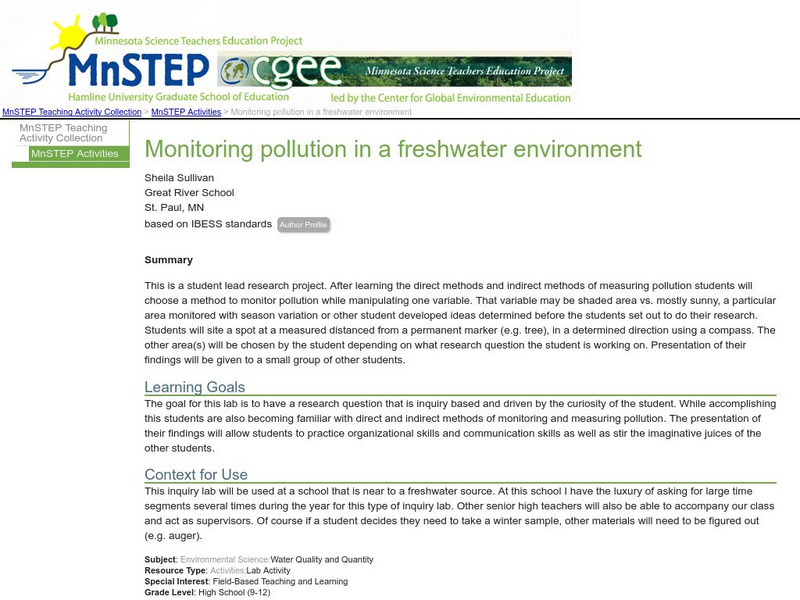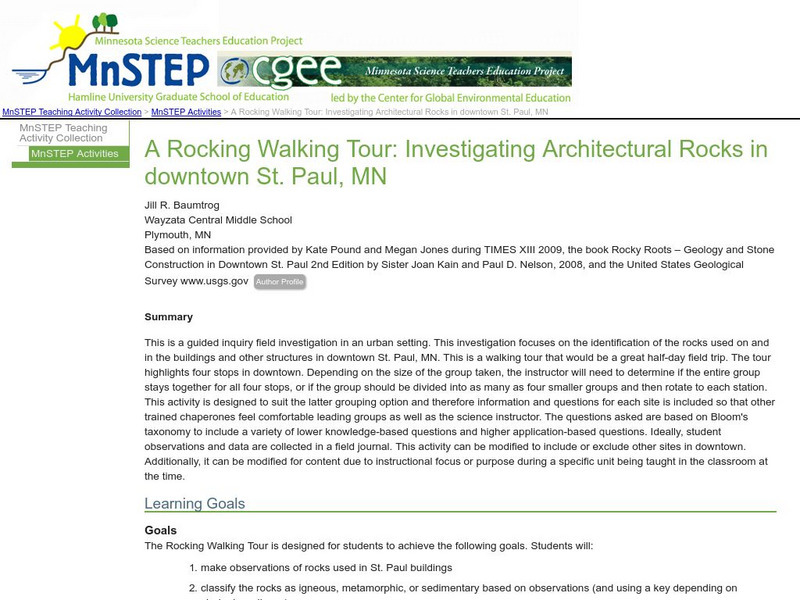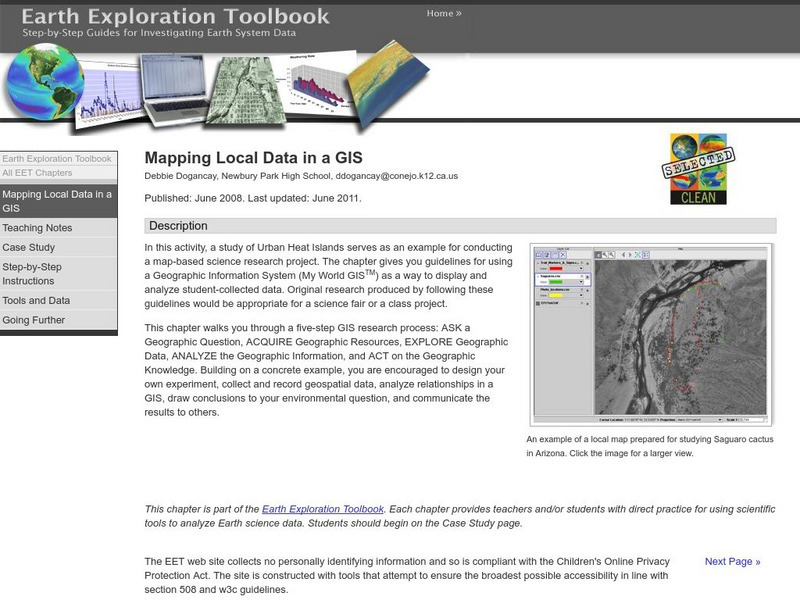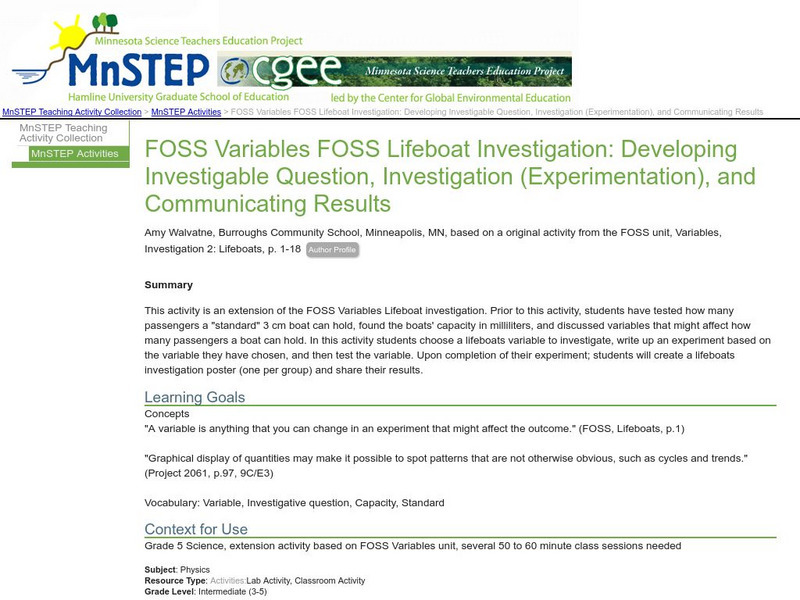Hi, what do you want to do?
Alabama Learning Exchange
Alex: I'm So Crushed
In this activity, learners will have an opportunity to solve a mystery. They will discover why a soda can collapses during a demonstration due to the effects of changes in temperature and atmospheric pressure. Students will gain further...
ClassFlow
Class Flow: Scientific Investigation
[Free Registration/Login Required] This flipchart explains the steps of scientific investigation. It is intended to help build understanding of the scientific investigation process by providing definitions, opportunities for student...
ReadWriteThink
Read Write Think: Digging Up Details on Worms: Using Science in an Inquiry Study
A lesson plan based on a study unit of earthworms, using the inquiry model to integrate scientific processes with literacy practices. Instruction plans, related resources, and standards are included.
Science Education Resource Center at Carleton College
Serc: Bacteria Growth Inquiry: Bodily Bacteria and Healthy Hygiene Habits
In this inquiry activity, groups of students will generate investigable questions to explore the link between hygiene/cleanliness and bacteria growth/population. They will record their processes and reflections in a journal and present...
Science Education Resource Center at Carleton College
Serc: Green Space Investigation: From Observation to Testable Questions
A field-based inquiry activity which begins with a small, focused, teacher-chosen domain of study, and then helps students develop investigable questions from their observations.
Science Education Resource Center at Carleton College
Serc: Chromotography: An Open Inquiry
After a short demonstration on chromatography, students brainstorm ways to change the experiment, and develop a new, testable question related to chromatography.
Science Education Resource Center at Carleton College
Serc: Investigating Trees
In this investigation, students will record an observation (drawing) of a tree in their science notebook. Following the observation, students will discuss what they observed and a list will be created by the classroom teacher. Based on...
Science Education Resource Center at Carleton College
Serc: Eggs and the Equinox
In this guided inquiry activity, students work to address the myth, "Eggs will balance on end on the equinox." Students to come up with their own procedure to test this question and perform the experiment.
Library of Congress
Loc: Everyday Mysteries Fun Science Facts
This resource is hosted by the Science and Technology Research Center of the Library of Congress. You are able to search the site to find answers to your science questions. The database of answers is composed of all questions asked of...
Science Education Resource Center at Carleton College
Serc: Investigating Movement of Tops
Students will raise questions about the way tops move by observing, through exploration/inquiry time, what they are made of, how the shape of each top affects its movement and what surface is best for a top to spin longest. As they...
PBS
Nh Pbs: Nature Works: Lakes
What is a lake? Discover the answer to this question when you explore this informative resource. This site provides information on how temperature and seasonal changes effects lakes, how lakes are formed, how lakes compare in numbers to...
McGraw Hill
Glencoe Biology: Methods of Science: Self Check Quiz
Take this self-checking, five question practice quiz over various methods of science.
Read Works
Read Works: Developing Possible Solutions
[Free Registration/Login Required] An informational text about solving problems. A question sheet is available to help students build skills in reading comprehension.
Science Education Resource Center at Carleton College
Serc: Monitoring Pollution in a Freshwater Environment
During this research project, young scholars will choose either the direct method or the indirect method to monitor and measure pollution while manipulating one variable. They will develop a research question to work on and present their...
McGraw Hill
Glencoe Biology: The Nature of Science: Self Check Quiz
Answer five comprehension check questions about the nature of science in this interactive quiz.
Science Education Resource Center at Carleton College
Serc: Mn Step: Rocks a Lesson in Inquiry
For this activity, students sort and classify rocks in small groups, and record questions they have. The class will sort the questions into investigatory and non-investigatory questions. They will choose one to investigate, make a...
Harvard University
Harvard Smithsonian: Everyday Classroom Tools
The focus of this series of lessons is to engage students in an exploration of the world around them. The emphasis is on inquiry as students learn about the earth, sun, light, shapes and more.
Science Education Resource Center at Carleton College
Serc: A Rocking Walking Tour: Investigating Architectural Rocks in St. Paul, Mn
This is a guided inquiry field investigation in an urban setting. This investigation focuses on the identification of the rocks used on and in the buildings and other structures in downtown St. Paul, MN. The questions asked are based on...
Other
Science Notebooks
Using science notebooks can be a boon for teachers looking for ways to bolster critical thinking, writing, analysis and scientific knowledge. This site offers examples, answers frequently asked questions and includes resources for teachers.
Science Education Resource Center at Carleton College
Serc: Mapping Local Data in a Gis
In this activity, young scholars will learn how to conduct a map-based science research project using a Geographic Information System (GIS). They will design an experiment, collect and record geospatial data, analyze geospatial...
Science Education Resource Center at Carleton College
Serc: Foss Lifeboat Investigation
The second of a lesson plan series contains an activity where students choose a lifeboat's variable to investigate, plan an experiment based on the variable they have chosen, and then test the variable. Upon completion of their...






